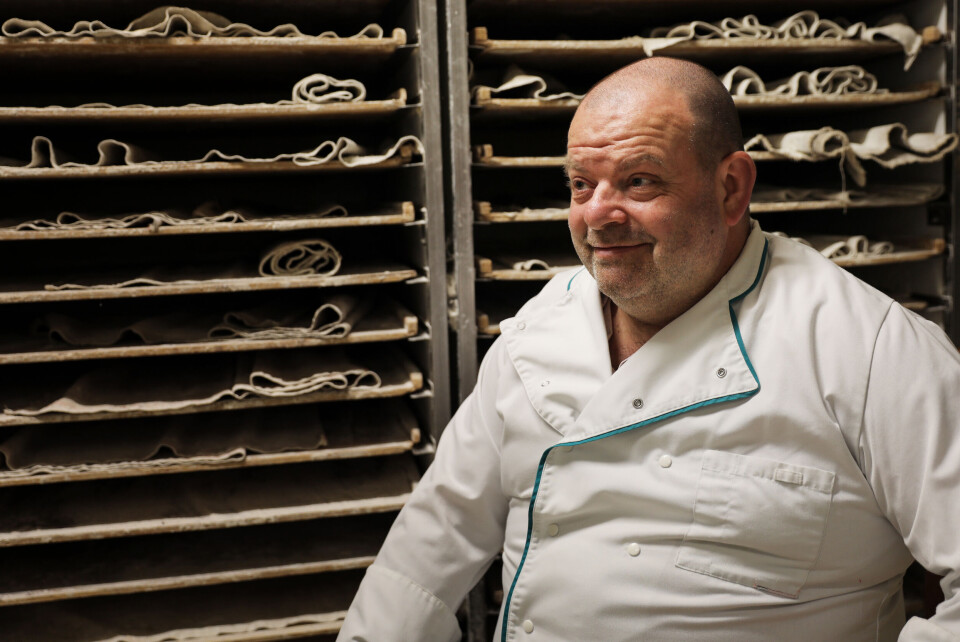-
‘No evidence third party involved’ in deaths of British couple in south-west France
Investigators update The Connexion on Dawn Kerr and Andrew Searle case
-
MPs push to remove low emission zones in France
Critics say the zones penalise lower-income households, but the government has warned abolishing them could cost billions
-
Trump tariffs: Americans in France hit by dollar drop
Europe has said the tariffs will cause the economy to ‘massively suffer’ as France plans retaliation
Hunger-strike baker stands as MP to give a voice to migrants in France
After campaigning to stop the deportation of his apprentice, Stéphane Ravacley thinks French immigration policy is unfair and aims to join the Assemblée Nationale to end the 'nonsense’

A baker who went on hunger strike in 2020 to stop his apprentice being deported as an illegal immigrant is standing in this month’s parliamentary elections.
‘I have a chance of being elected’
Stéphane Ravacley, 53, from Besançon, said his experience of going to the National Assembly to see debates on immigration policy and of working on proposals from associations he was involved with convinced him it was a good move.
“It is all very well being involved in associations, but sitting in the Assemblée Nationale, I realised that essentially we had no voice,” he told The Connexion.
“Only the MPs had the right to speak, and some of the nonsense that came out, and which was not challenged by anyone, was incredible.
“It was then that the idea I could stand for election grew. I am sure I have a chance of being elected – I would not stand if I did not.”
Left must unite to beat Macron’s MP
Mr Ravacley is standing with the backing of local parties, including Europe Écologie-Les Verts (EELV), under the banner of a Société civil union candidate.
The first round of the elections take place this coming Sunday (June 12) with a second round expected a week later on June 19.
Read more: 11 questions on the legislative elections this month in France
Besançon, in Doubs, eastern France, has an EELV mayor but an MP from Emmanuel Macron’s Renaissance (formerly LREM) party who won with 62.2% of votes in 2017 and who could be hard to beat.
However, in the first round of the presidential election, the Far Left’s Jean-Luc Mélenchon topped the local polls with 32% of the vote, followed by Mr Macron on 27%, and Marine Le Pen on 13%.
“If the left is united, then there is a good chance we can change our MP and I want to be the new one,” said Mr Ravacley.
Hunger-strike and hospital
He enjoys a high profile thanks to his successful campaign to allow Laye Fodé Traoré, his apprentice, to stay in France.
Mr Traoré, from Guinea, West Africa, came to France as a 16-year-old after travelling through the Sahara to Libya and crossing the Mediterranean to Italy in a small boat.
Taken in by France as an unaccompanied minor, he was housed and encouraged to sign as an apprentice with Mr Ravacley.
When he turned 18, he was served deportation papers.
After failing to overturn the decision, Mr Ravacley staged a 10-day hunger strike, eating only a little broth.
He lost 8kg and was briefly hospitalised.
A voice for migrants and artisans in France
A petition calling for Mr Traoré to be allowed to stay in France was signed by 242,000 people, and the government reversed its decision, allowing Mr Traoré to stay and work.
Read more: French baker hunger strike over trainee facing deportation
Read more: Baker saved from deportation from France grateful to boss
He now works in another bakery in a town 10km from Besançon after his girlfriend moved there.
He has continued his apprentice training and still visits Mr Ravacley when he can.
“If elected, I will obviously be putting what I learned during my fight for Laye to push for a more humane and coherent immigration policy.
“But the other big area of interest is to promote and serve as the voice of artisans.
“There are very few in the assembly and, as far as I know, there has never been a baker.
“So many aspects of government affect artisans at work – politicians are amazed at the charges we have to pay to state organisations which they do not even know exist.
“It is time that changed.”
Few artisans make it to the Assemblée Nationale
A study by Le Monde of MP jobs after the 2017 polls found 16.8% were private business managers; 14.2% non-teaching civil servants; 12.6% full-time politicians; 12% teaching, from school to university; 8.6% heads of businesses; 7.4% lawyers; 7.1% medical profession; 3.4% professions libérales, 2.9% managers in public-owned firms; 2.7% farmers; and 2.6% engineers.
Related articles
Elisabeth Borne must win at legislative elections to remain French PM
United Left, Macron rebrand: Why French politics is in a state of flux
French MP: why I fast-tracked law to combat bullying in schools
























